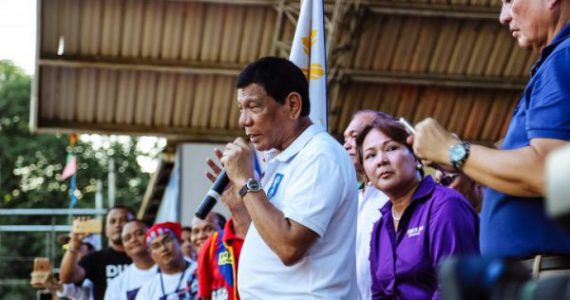
Peace, bit by bit: A self-governing entity for the Muslim minority in the Southern Philippines
The creation of the “Bangsamoro”, a self-governing entity for the Muslim minority in the Southern Philippines shall promise long-lasting peace for the conflict-troubled region. After constantly recurring manifestations of political failure that have long turned into inflammable matter for extremist movements, the efforts for peace seem to prosper for the first time, if not abused for a greater objective.
On July 26, 2018 President Rodrigo Duterte enacted the Bangsamoro Basic Law (BBL) shortly after his 3rd State of the Nation Address. The constitutional framework of the BBL aims to put in place a self-governing entity that will replace the current Autonomous Region of Muslim Mindanao (ARMM), corresponding to long-existent demands by the Muslim minority for exclusive powers over land management, annual block grants as well as Shariah Courts. After a first draft of the bill was mangled by the opposition in the Senate so that even those concessions that were already granted to the ARMM were taken back, the revised Bangsamoro Organic Law raises hopes of finally uniting the demands of the two Muslim separatist groups MILF and MNLF, while providing less corroding surface for concerns of constitutionality. Following more than 60 years of bloody conflict, a peace agreement could therefore be reached enabling the demobilization of the armed rebel group MILF.
Nonetheless, experts who have experienced the ups and downs of the peace process such as Octavio Dinampo, Professor at the University of Mindanao, remain cautious in fearing yet another backlash of the conflict: “The fears are still there that BBL is just a step away from Moros’ (i.e. Filipino Muslims) right for self-government which cannot be allowed all in the name of security and territorial integrity dialectics.”
But concerns about state sovereignty on the part of the elites in Manila are not the only obstacles for peace and development. In fact, the braiding of power is too dense and cannot be simply described as the story of Mindanao’s intra-religious clashes between its Muslim minority and the predominantly Christian mainstream in Manila. After gaining its independence in 1946, the Philippines failed to provide adequate infrastructure, education, and economic support for the regions especially inhabited by Muslims. Alienation, anger and the need for autonomy drew the path for a bloody conflict and the outbreak of extremism, creating a vacuum of isolation that turned young men from farmers to bandits, acting in the name of Allah.
While some of the Philippines’ extremist movements such as the Abu-Sayyaf regressed into groups of organized crime in the early 2000s, the continuation of the conflict has led to ceaseless radicalisation of strongly ideological breakaway groups such as “Maute” and the “Bangsamoro Islamic Freedom Fighters” (BIFF) who have sworn allegiance to extremist groups Islamic State (ISIS) and Al-Qaida. The events of the Marawi siege in 2017, collectively exercised by these groups, symbolised a turning point and strengthening of the fundamental aspirations for an Islamic State, stressing the importance of a truly autonomous Bangsamoro government as a first step to peace and prosperity.
While the self-governance of the Moros would only be an antidote in the fight against extremism, experts such as the Secretary General of the Mindanao Peoples Caucus, Mary Ann Arnado, agree that it would be a “crucial step that will open a lot of opportunities for sustainable development and inclusive growth.” But the hopes carried by the peace process remain subject to a Filipino government that must truly commit to the attributes of sovereignty it entitles the Bangsamoro to, balancing the desire for autonomy with an upheld identification to the Filipino nation state. The peace process must therefore go beyond constitutional changes and likewise reconcile long-lasting grievances of pejorative perceptions between Mindanao and the rest of the country in order to ensure national indivisibility.
Bangsamoro could become the prototype of functioning autonomous governance through an effective horizontal power sharing if the newly established Bangsamoro Region (BARMM) does not solely become the play ball of federalist aspirations. After all, the lists of office holders in the regions still resemble too closely family trees in order to guarantee true self-determination and autonomy for Moros and other Filipinos under a framework of federalism.
Coming from Mindanao, Duterte himself is given a key role in promoting the promising Bangsamoro Organic Law. But despite having experienced the conflict at first hand, the President remains noticeably silent as he expressed his support for the organic act only recently. In all this, Dinampo suspects Duterte to be doing “a very tight balancing act that is meant to be his way out in case hell breaks loose in Mindanao once more.” A plebiscite over the adoption of the Bangsamoro Organic Law will be held in January 2019 but political campaigning has long begun. It remains to be seen whether the President’s reluctant support will be sufficient to ensure long-lasting peace. Either way, effective, meaningful and collective action needs to be taken rather sooner than later, before Mindanao’s Moros pursue their own means of “autonomy”.
